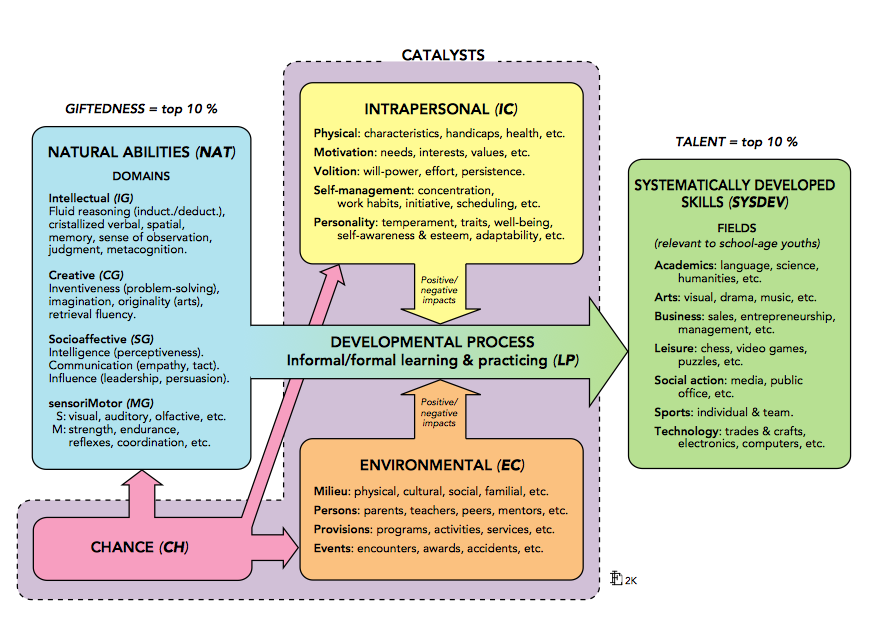Everyone has relative strengths, but children whose abilities fall within the top ten percent of the population in any area are regarded as ‘gifted’, according to Françoys Gagné, Emeritus Professor of Educational Psychology at the University of Montreal. Michael Pyryt,from the University of Calgary, described the difference between strengths and giftedness as similar to weaknesses and handicaps, saying:
We all have weaknesses but we don’t all have handicaps.”
Miraca Gross, Emeritus Professor and Director of the Gifted Education Research, Resource and Information Centre (GERRIC), at the University of New South Wales, said:
Every child is a gift; every child, irrespective of ability levels has relative strengths and weaknesses; but not every child is gifted.”
The term ‘gifted’ is a psychological and educational term.
Gagné explains a developmental process is required to transform a child’s natural abilities or ‘gifts’ (when occurring in the top 10% of the population), into systematically developed skills or ‘talents’ (when occurring in the top 10% of the population).

Image source: https://www.curriculumsupport.education.nsw.gov.au/policies/gats/assets/pdf/poldmgtcolrdiag.pdf
A child can be gifted without being talented (because their talents have not yet developed); however an individual cannot be talented without first being gifted. There are a range of factors that impact positively or negatively upon the developmental process, reaching one’s potential and talent. A child may have a natural ability, but if she or he does not enjoy the activity, lacks motivation and does not put in sufficient effort, this ability is unlikely to develop into a talent. Gagné highlights the impact of people, resources, events and opportunities in a child’s life in developing potential. The development of talent depends on what the family, school, culture and the child contribute.
The development of talent is influenced by factors such as:
- family
- school
- culture
- the child
